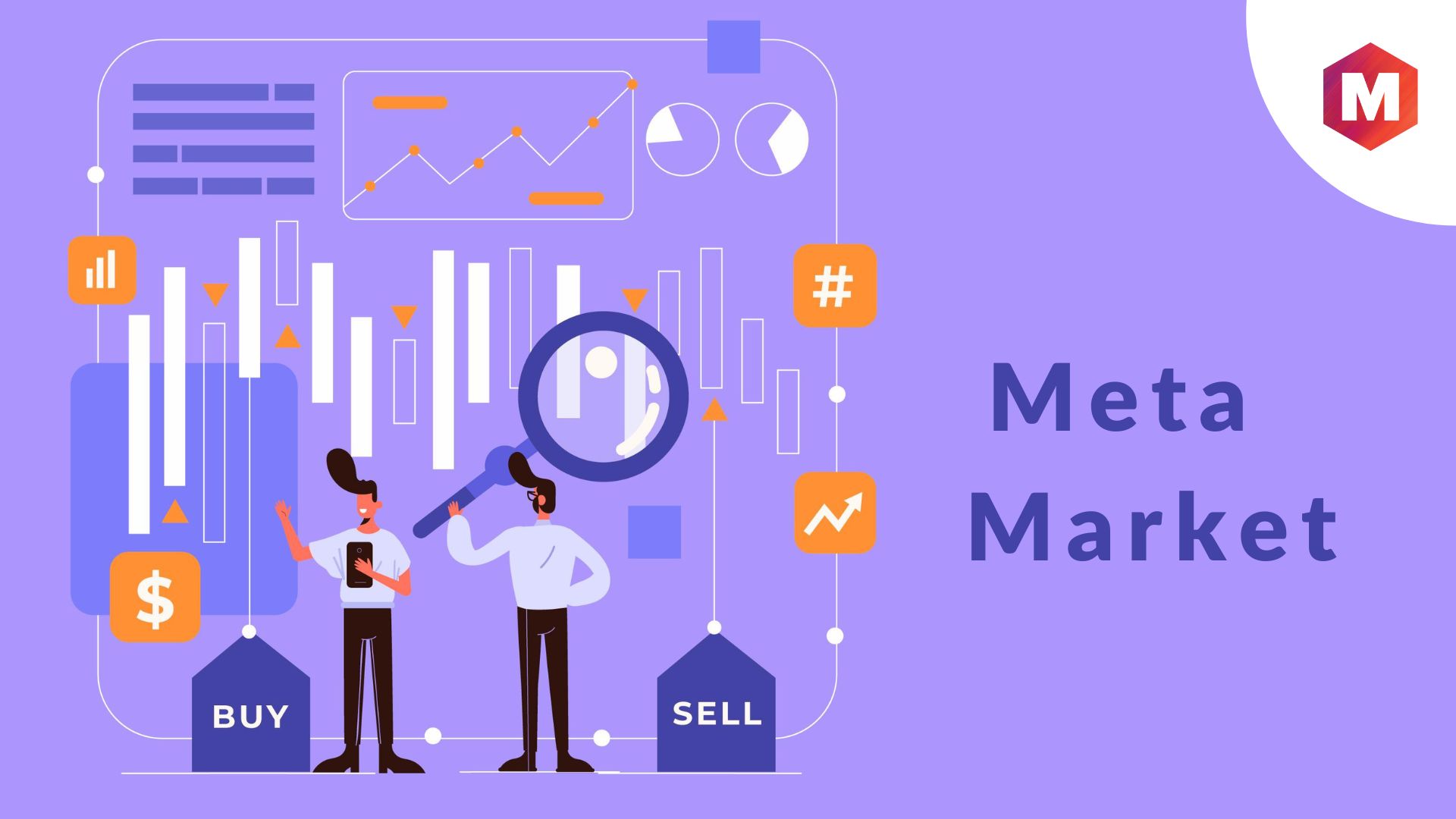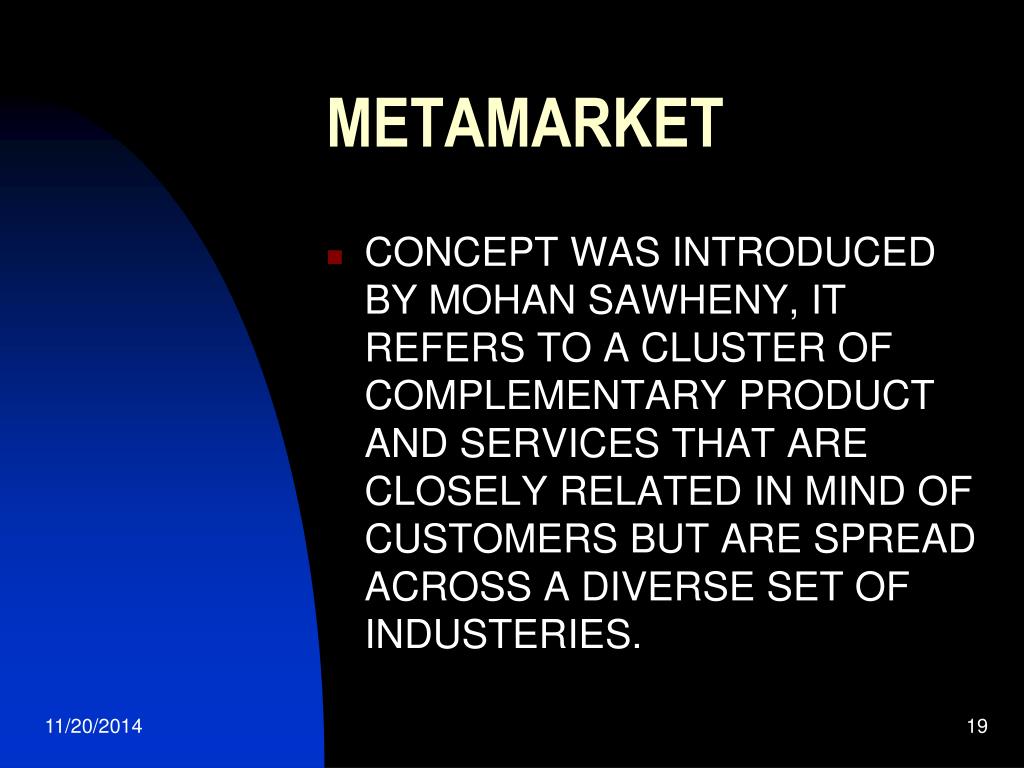Are you ready for the next evolution of how we buy and sell? The future of commerce isn't just about online stores; it's about creating interconnected ecosystems where discovery, interaction, and transactions seamlessly blend together, redefining the entire consumer experience.
The digital marketplace is in constant flux, driven by the relentless march of technological innovation. These advancements are not only streamlining the processes of buying and selling but are also empowering merchants to forge deeper, more meaningful connections with their customers through dynamic online storefronts. This paradigm shift necessitates a closer look at the emerging trends that are shaping the very fabric of commerce as we know it.
| Category | Information |
|---|---|
| Topic Focus | Meta Markets & Future of Commerce |
| Key Concepts | Meta Discovery Commerce, Social Commerce, Digital Transformation, Metamarkets |
| Related Terms | Google Discovery Ads, Dynamic Ads, Digital Marketplaces, B2B Digital Commerce, Metaverse |
| Further Reading | Shopify's Future of Commerce Guide |
One of the most intriguing developments is the rise of "meta discovery commerce." But what exactly differentiates meta discovery commerce from, say, Google Discovery Ads? The answer lies in the scope and intent. While Google Discovery Ads primarily focus on presenting relevant products to users based on their browsing history and search queries, meta discovery commerce aims to create a holistic and immersive shopping experience that transcends the limitations of traditional advertising. It's about anticipating customer needs and desires even before they are explicitly expressed.
- Udon Recipe Inspiration Delicious Custom Ideas More
- Vegamovies Safety Check Reviews Trust Scores More Warning
The importance of meta discovery commerce stems from its ability to cut through the noise of the increasingly crowded digital landscape. In an era where consumers are bombarded with countless advertisements and marketing messages, it's becoming increasingly difficult for brands to capture their attention. Meta discovery commerce offers a solution by leveraging data, artificial intelligence, and machine learning to deliver personalized and relevant experiences that resonate with individual customers on a deeper level. This approach not only drives sales but also fosters brand loyalty and long-term customer relationships.
Understanding the meta discovery commerce system requires a grasp of its underlying mechanics. At its core, it's a data-driven process that involves collecting and analyzing vast amounts of information about customer behavior, preferences, and purchase history. This data is then used to create highly targeted and personalized advertising campaigns that are designed to reach the right customers at the right time with the right message. The system also incorporates elements of artificial intelligence and machine learning to continuously optimize campaigns and improve their effectiveness.
A crucial component of the meta discovery commerce system is the dynamic ad. These ads are not static images or text-based messages; instead, they are personalized and interactive experiences that adapt in real-time based on customer behavior and preferences. For example, a dynamic ad might showcase different products or offers to different customers based on their past purchases or browsing history. This level of personalization significantly increases the likelihood of a customer clicking on the ad and making a purchase.
Several strategies can be employed to effectively leverage discovery commerce. First and foremost, it's essential to invest in data analytics and machine learning capabilities. These technologies are crucial for collecting and analyzing customer data, identifying patterns and trends, and creating personalized advertising campaigns. It's also important to focus on creating high-quality content that is engaging, informative, and relevant to your target audience. Finally, it's essential to continuously test and optimize your campaigns to ensure that they are delivering the best possible results.
Beyond meta discovery commerce, several other trends are shaping the future of commerce. Digital marketplaces continue to proliferate, providing businesses with a convenient and cost-effective way to sell their products and reach new customers. The concept of "metamarkets," interconnected ecosystems of marketplaces and marketspaces, is also gaining traction. These metamarkets offer customers a seamless and integrated shopping experience across multiple platforms and channels.
Social commerce, the practice of selling products and services directly through social media platforms, is another significant trend. Platforms like Facebook and Instagram are increasingly becoming important channels for brands to connect with customers and drive sales. Social commerce offers several advantages, including the ability to reach a large and engaged audience, the ability to personalize the shopping experience, and the ability to track results in real-time.
The rise of social commerce has blurred the lines between marketing and sales. Customers can now complete purchases without ever leaving their social media apps, streamlining the buying process and making it more convenient. This seamless integration of commerce into the social media experience is transforming the way brands interact with their customers and driving significant growth in online sales.
Digital transformation is also playing a crucial role in shaping the future of commerce. Retailers are increasingly adopting new technologies, such as artificial intelligence, machine learning, and cloud computing, to improve their operations, enhance the customer experience, and drive sales. The four pillars of digital transformation in retail include customer experience, operational excellence, product innovation, and business model reinvention.
Application Programming Interfaces (APIs) are also playing a vital role in the digital transformation of commerce. APIs enable different systems and applications to communicate with each other, allowing businesses to create more integrated and seamless experiences for their customers. There are six main types of APIs, each offering different benefits and capabilities. These APIs facilitate everything from payment processing to inventory management, streamlining operations and improving efficiency.
The definition of digital commerce is constantly evolving to encompass new technologies and business models. Some of the key facets of modern digital commerce include B2B digital commerce, which involves transactions between businesses, and the increasing emphasis on customer experience. Customers expect a seamless and personalized shopping experience across all channels, and businesses are investing in new technologies to meet these expectations.
While the metaverse holds potential as a future commerce channel, its long-term viability remains uncertain. There is no guarantee that it will evolve into an attractive platform for consumers, and businesses should carefully consider the risks and opportunities before investing heavily in this technology.
To understand the complexities of the modern commerce landscape, it's essential to have a clear definition of a market. A market is essentially a group of potential buyers with needs and wants and the purchasing power to satisfy them. This definition provides a foundation for understanding the dynamics of supply and demand, competition, and consumer behavior.
Rather than attempting to impose a rigid definition on the term "meta markets explained definition examples future of commerce," it is more productive to identify the key characteristics that define this emerging concept. This ambiguous framework allows for a more nuanced understanding of the complex and ever-evolving world of commerce.
The protection of investors and traders remains a paramount concern in the digital age. Safeguarding against financial loss due to price fluctuations and market volatility is a critical aspect of ensuring a stable and trustworthy commerce environment.
Ultimately, the future of commerce is about creating personalized, seamless, and engaging experiences that meet the evolving needs and expectations of consumers. Businesses that embrace these trends and invest in new technologies will be well-positioned to thrive in the years to come.



Detail Author:
- Name : Larue Stracke
- Username : ron.boyle
- Email : olarson@schmitt.org
- Birthdate : 1992-02-01
- Address : 7030 Rey Spurs Suite 072 East Kristopher, GA 89963
- Phone : +1 (919) 488-5655
- Company : Marquardt, Metz and Brekke
- Job : Photographic Developer
- Bio : Reiciendis qui asperiores quibusdam voluptates et. Numquam delectus quis minima ducimus rem et est quasi.
Socials
linkedin:
- url : https://linkedin.com/in/jorge_hirthe
- username : jorge_hirthe
- bio : Explicabo magni quo ut modi aspernatur.
- followers : 4321
- following : 795
facebook:
- url : https://facebook.com/jorgehirthe
- username : jorgehirthe
- bio : Voluptas sit pariatur quia sed nobis est quis.
- followers : 1650
- following : 2478
instagram:
- url : https://instagram.com/hirthej
- username : hirthej
- bio : Distinctio inventore et veritatis vitae. Eos aut commodi adipisci. Ut deserunt at corrupti.
- followers : 1169
- following : 706